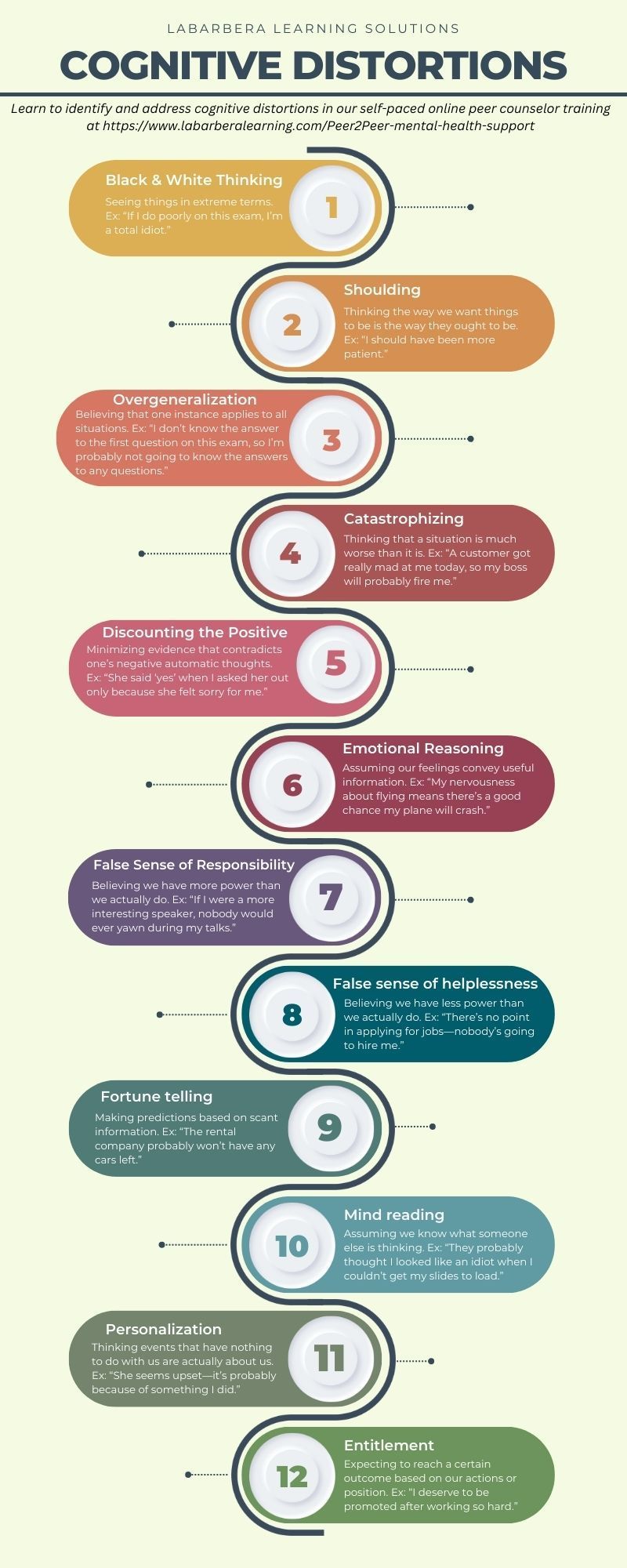Your cognitive distortions are messing with your mind
What are Cognitive Distortions?
Cognitive distortions are biased thoughts that can distort the way a person sees themselves, their life, their specific day-to-day situations, their relationships, and other people. These thoughts can contribute to mental health conditions such as depression and anxiety. Simply put, a cognitive distortion is an inaccurate way of thinking (American Psychological Association).
Cognitive distortions are irrational thought patterns that are exaggerated by negative thinking and feelings. They convince our minds that what we’re thinking is true. They “mess with our minds.”
These common thought patterns occur automatically in our normal day-to-day thoughts. This makes it difficult to recognize them.
These negative thought patterns or habits make us exaggerate or perceive reality inaccurately. This can be damaging to our mental health, our relationships, and our overall wellbeing.
Who is affected by cognitive distortions?
Well…everyone. Everyone can experience irrational or unhelpful thinking patterns in their day-to-day thoughts. Many of us won’t be affected negatively by them, or we’ll be able to recognize irrational thoughts quickly.
However, for those of us who struggle with stress or anxiety, these distorted thoughts feel very real. It is difficult to recognize that such thoughts are irrational.
When we experience cognitive distortions, our minds are on autopilot. We don’t realize what’s happening, which makes it difficult to recognize that our thoughts are inaccurate and illogical.
Cognitive distortions are common
Take a look at the infographic below outlining the definition and an example of 12 common cognitive distortions.
Have you ever had a cognitive distortion? (Hint: Yes, you have! We all have them.)
Example of a cognitive distortion
Jamie was having a tough year at home and at work. Her work responsibilities had greatly increased and around the same time she discovered a profound betrayal in her marriage. As a result, her sleep had been poor for many months and she now felt overwhelmed and depressed. To top it off, in a recent performance review meeting, Jamie’s boss told her he thought her performance was slipping. She talked about it with her friend Vanessa over their lunch break, and she soon started to cry. “My home life is a mess, I’m failing at work—I am totally inept,” Jamie said.
Can you guess what Jamie’s cognitive distortion was?
Cognitive distortions have power
“For something that can’t be seen, heard, or measured, thoughts have incredible power. Our mood for an entire day can hinge on how we interpret a single disappointment. Thoughts can also have a profound effect on our behavior, affecting whether we forgive or retaliate, engage or withdraw, persevere or give up. No matter what you’ve been struggling with, chances are that your thoughts have played a role, either in causing your distress or in prolonging it.” Seth Gillihan
What are some ways you see cognitive distortions playing out in your own life?
Please note: This content is for entertainment and/or educational purposes only and is not meant to be a substitute for clinical therapy, consultation, or crisis services.
Learn to identify and address your cognitive distortions and help others in our self-paced online peer2peer counselor training
here.











